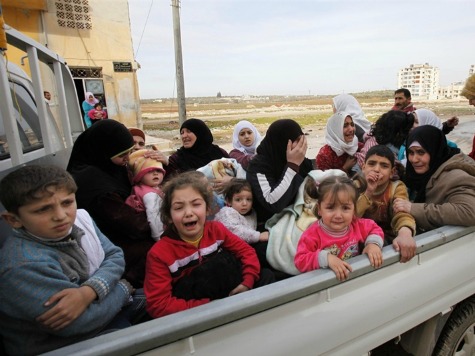With unprecedented candor, the Vatican has censured the United Nations, accusing it of “apathy” and “indifference” in the face of the violent conflicts besieging the world today.
Rather than hiding behind diplomatic generalities, the Vatican did not mince words in taking the UN to task, calling the organization “irresponsible.”
On Tuesday the Vatican released the full text of its address to the General Assembly of the United Nations, delivered Monday by Secretary of State Cardinal Pietro Parolin.
“At times,” the cardinal said, “such apathy is synonymous with irresponsibility. This is the case today, when a union of States, which was created with the fundamental goal of saving generations from the horror of war that brings untold sorrow to humanity, remains passive in the face of hostilities suffered by defenseless populations.”
The Vatican also affirmed that the use of force is “both licit and urgent” to stop aggression.
“My Delegation wishes to recall that it is both licit and urgent to stop aggression through multilateral action and a proportionate use of force,” the cardinal said.
Parolin expressed the earnest hope of the Holy See “that the international community will assume responsibility in considering the best means to stop all aggression and avoid the perpetration of new and even graver injustices.”
The cardinal repeated a previous petition by Pope Francis last August in a letter to the Secretary General of the UN, which the Vatican obviously considers unheeded. “It is with a heavy and anguished heart that I have been following the dramatic events in northern Iraq,” wrote the Pope at that time. In the letter the Pope made an “urgent appeal” to the international community to “take action to end the humanitarian tragedy now underway.”
Parolin called the situation in Iraq and Syria “dramatic,” and described it as “a totally new phenomenon: the existence of a terrorist organization which threatens all States, vowing to dissolve them and to replace them with a pseudo-religious world government.”
Again quoting the Pope, Parolin said that today there are those who would presume to wield power by coercing consciences and taking lives, persecuting and murdering in the name of God.”
Such violence, he said, “is born out of a disregard for God” and “falsifies religion.”
Parolin also acknowledged that “this new phenomenon has found followers in numerous places, and has succeeded in attracting young people from around the world who are often disillusioned by a widespread indifference and a dearth of values in wealthier societies.”
The cardinal criticized the habit of viewing these conflicts through the lens of a “clash of civilizations,” which, he said, “only leads to reactions of a xenophobic nature that, paradoxically, then serve to reinforce the very sentiments at the heart of terrorism itself.”
Instead, he underscored the importance of international law, with special emphasis on the “responsibility to protect.” The recent terrorist phenomenon, he said, disregards the existence of the state and, in fact, the entire international order.” Terrorism, he said, aims not only at overthrowing governments, damaging economic structures or committing common crimes. “It seeks to directly control areas within one or various states, to impose its own laws, which are distinct and opposed to those of the sovereign State.”
It also “undermines and rejects” all existing juridical systems, and seeks to impose dominion over consciences and control over persons, he said.
The global nature of this phenomenon, he added, “is precisely why the framework of international law offers the only viable way of dealing with this urgent challenge.”
The cardinal called it “disappointing” that the international community “has been characterized by contradictory voices and even by silence with regard to the conflicts in Syria, the Middle East and Ukraine.” The international community must “do all that it can to stop and to prevent further systematic violence against ethnic and religious minorities,” he said.
The cardinal ended his address expressing his hope that the UN “will spare no effort to put to an end the clamor of weapons that marks existing conflicts and that it will continue to foster the development of the entire human race, and in particular, the poorest among us.”

COMMENTS
Please let us know if you're having issues with commenting.